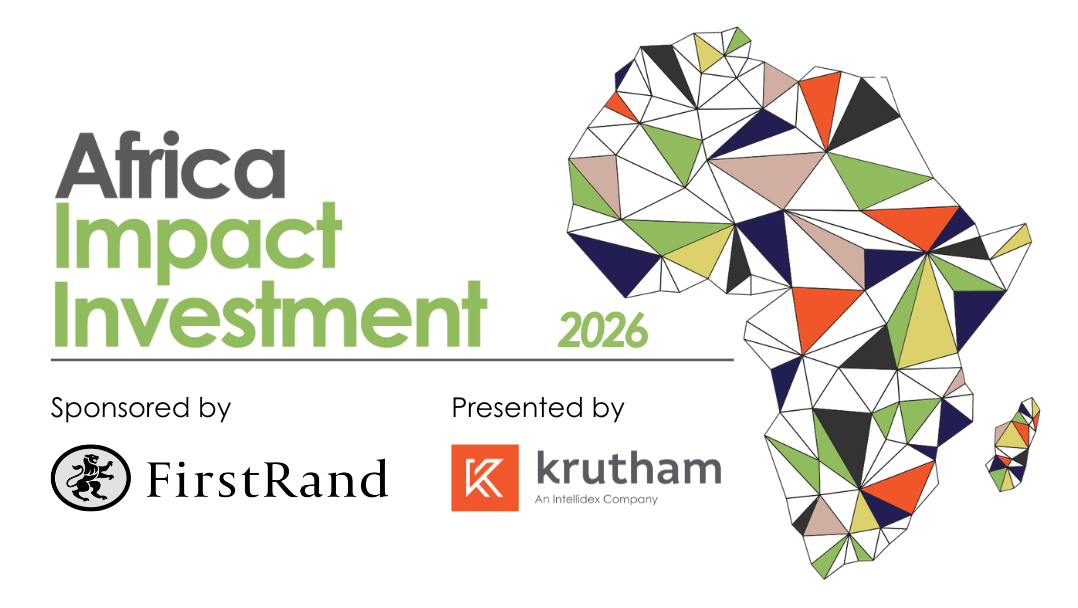This award recognises fund managers who have a dedicated impact investment fund within their overall portfolio.
Inspired Evolution
About
Founded in 2007, Inspired Evolution is one of Africa’s trusted specialised clean energy, energy access and resource efficiency fund managers. As a first mover investing in the African continent for almost two decades, Inspired Evolution has financed more than 10 GWs of renewable energy projects and currently manages over 500 million US dollars across three funds. The fund’s mandate is to maximise its impact across various sectors and geographies, ensuring that its investments not only deliver environmental benefits but also address social and economic challenges faced by communities in Africa. IE’s mission is to drive positive climate impact while generating sustainable financial returns, necessitating an integrated, systemic approach to investing in the transition to a low-carbon economy in Africa. The fund’s holistic approach to Africa’s just energy transition to more sustainable and inclusive economies is unique. By focusing on the interconnected nature of environmental and socioeconomic issues, Evolution III invests in solutions that are integrated in nature and more likely to deliver on impact outcomes over time. Further, the fund’s uniquely African perspective allows for nuanced approaches to opportunity identification, risk mitigation, partnership building and impact measurement.
The problem
To address the pressing need for sustainable energy access and climate mitigation in Africa, Evolution III aims to tackle the interconnected challenges of energy poverty, climate change, economic development and public health in Africa, to create a more sustainable and equitable future for the continent.
Addressing challenges
The IE team has had to address two key challenges with respect to Evolution III:
1: Balancing financial returns with impact objectives without compromising one or the other. IE recognises that its impact strategy may present the potential for lower financial returns compared to traditional investment approaches, especially in cases where social or environmental outcomes are prioritised over maximising financial returns. To combat this, IE implements robust processes and strategies with respect to due diligence, risk diversification, financial structuring, exit strategies, monitoring and evaluation, stakeholder engagement and communication and collaboration.
2: Measuring and quantifying impact in a way that is meaningful and comparable across different investments. Impact metrics can be complex and context-specific, making it challenging to assess and compare the social or environmental outcomes of different investments accurately. To ensure impact data relevance, Evolution III tracks over 100 impact metrics, aligned with methodologies used by the Global Impact Investing Network (GIIN), Impact Reporting and Investment Standards (IRIS+), Harmonised Indicators for Private Sector Operations (HIPSO), and respective investors’ reporting requirements.
“One lesson we’ve learned is the importance of clear communication and alignment among stakeholders regarding impact expectations. Ensuring that investors, investees and other stakeholders have a shared understanding of impact objectives and how they will be measured helps mitigate potential conflicts and fosters collaboration towards common goals. Additionally, we’ve learned the value of flexibility and adaptation in our approach to balancing financial returns with impact objectives. As circumstances change and new opportunities or challenges arise, we must be willing to adjust our strategies and priorities to optimise both financial and impact outcomes. Overall, finding the right balance between financial returns and impact objectives requires ongoing learning, collaboration, and adaptation, but the potential for positive social and environmental change makes it a worthwhile endeavour.”
What makes this fund unique?
IE is a private equity investor and Evolution III is a private equity investment fund. The use of low-cost leverage and blended finance increases the fund’s ability to attract private investment by mitigating risks through the strategic use of concessional finance from public or philanthropic sources. Financial instruments such as green bonds or syndicated loans are utilised to scale up investment capabilities as needed, adapting to the funding requirements of different projects and regions. IE’s investment strategy identifies and targets areas where traditional investment approaches have fallen short, including:
- A focus on clean energy in Africa: IE specifically targets clean energy projects in Africa, recognising the region’s immense renewable energy potential and the urgent need for sustainable energy solutions.
- Multi-sector expertise: Evolution III leverages 17 years of deep, specialised multi-sector knowledge in Africa. This extensive experience enables IE to identify investment opportunities that may be overlooked by traditional investors who lack a nuanced understanding of the African market landscape and its unique challenges.
- Risk mitigation strategies: Traditional investors may perceive investments in clean energy projects in Africa as high risk due to factors such as political instability, regulatory uncertainties and inadequate infrastructure. Evolution III employs risk mitigation strategies, such as investing in diversified clean energy platforms and partnering with seasoned developers, to minimise risk and enhance the attractiveness of these investments.
- Alignment with impact objectives: Evolution III’s investment strategy is explicitly aligned with impact objectives. By targeting investments that address pressing social and environmental needs, IE aims to generate both financial returns and positive outcomes for communities and the environment.
- Long-term Perspective: Evolution III takes a long-term perspective on investment, recognising that sustainable development requires patient capital and a commitment to enduring impact. This contrasts with traditional investment approaches that may prioritise-short-term financial gains over longterm sustainability. By addressing these gaps and challenges in traditional investment approaches, Evolution III aims to unlock opportunities for impactful investment across the continent.
Scalability
Evolution III’s model is highly scalable, for several reasons:
- Adaptability: The fund’s investment strategy is adaptable to different market conditions and regulatory environments. This flexibility enables it to accommodate projects of varying sizes and subsector focus across multiple jurisdictions.
- Collaboration: IE collaborates with a range of financial partners to leverage additional funding and share investment risks, making use of blended finance structures, which makes larger and more ambitious projects feasible. Partnerships with technology providers, local businesses and international investors enhance project execution capabilities and provide access to additional capital and markets.
- Track record: A strong record of financial and impact return makes the fund attractive to impact investors.
Impact
Investing in clean energy sources aligns with several Sustainable Development Goals, as does investing in companies that prioritise equal employment opportunities and safe working environments. These investments promote social justice, empower women, and ensure safe and equal working opportunities while fostering sustainable economic development.
By facilitating a just energy transition and promoting resource efficiency, Evolution III works to reduce greenhouse gas emissions, mitigate climate change and build climate resilient and sustainable energy sectors across Africa.
Additionally, investing in innovative business models and collaborative partnerships contributes to SDG 17 (Partnerships for the goals), as it fosters the development of resilient and sustainable economies and communities.
Evolution III has yet to reach its final close, but is aiming to maintain the track record of Evolution I and II with respect to delivering impact in the form of energy access, skills development, job creation, gender equality and emissions reduction.
Click here to download the case study
Share
This research report was issued by Krutham South Africa Pty Ltd.
Krutham aims to deliver impartial and objective assessments of securities, companies or other subjects. This document is issued for information purposes only and is not an offer to purchase or sell investments or related financial instruments. Individuals should undertake their own analysis and/or seek professional advice based on their specific needs before purchasing or selling investments.
The information contained in this report is based on sources that Krutham believes to be reliable, but Krutham makes no representations or warranties regarding the completeness, accuracy or reliability of any information, facts, estimates, forecasts or opinions contained in this document. The information and opinions could change at any time without prior notice. Krutham is under no obligation to inform any recipient of this document of any such changes.
No part of this report should be considered as a credit rating or ratings product, nor as ratings advice.
Krutham does not provide ratings on any sovereign or corporate entity for any client.
Krutham, its directors, officers, staff, agents or associates shall have no liability for any loss or damage of any nature arising from the use of this document.
Disclosure
The opinions or recommendations contained in this report represent the true views of the analyst(s) responsible for preparing the report. The analyst’s remuneration is not affected by the opinions or recommendations contained in this report, although his/her remuneration may be affected by the overall quality of their research, feedback from clients and the financial performance of Krutham group entities.
Krutham staff may hold positions in financial instruments or derivatives thereof which are discussed in this document. Trades by staff are subject to Krutham’s code of conduct which can be obtained by emailing mail@krutham.com.
Krutham may have, or be seeking to have, a consulting or other professional relationship with the companies, sovereigns or individuals mentioned in this report. A copy of Krutham’s conflicts of interest policy is available on request by emailing mail@krutham.com. Relevant specific conflicts of interest will be listed here if they exist.
- Krutham provides independent advice and independent research to a wide range of investors and financial institutions on Eskom, Denel, Transnet, Land Bank and SAA. Krutham’s interactions with all clients on Eskom, Denel, Transnet, Land Bank and SAA may include business confidential information but does not include MNPI and so does not provide a conflict. Krutham does not ‘act’ or ‘advocate’ for or ‘represent’ any of these clients. Krutham has regular interactions with government, Eskom, Denel, Transnet, Land Bank, SAA and other related entities connected with the SOE situation but does not provide paid consulting services or paid advice to any of these entities. These interactions are governed by Krutham’s own conflicts of interest policy as well as secrecy rules of the respective institutions or state-owned companies.
- Krutham provides a range of services into ‘organised business’ groupings in South Africa, which includes independent bespoke research and advice. Krutham is compensated for these services. Krutham does not ‘act for’ or ‘advocate’ for or ‘represent’ any of these clients.
- Krutham is currently involved in policy design work on a number of government priorities.
Copyright © 2023. All rights reserved. This document is copyrighted to Krutham South Africa Pty Ltd.
This report is only intended for the direct recipient of this report from a Krutham group company employee and may not be distributed in any form without prior permission. Prior written permission must be obtained before using the content of this report in other forms including for media, commercial or non-commercial benefit.

